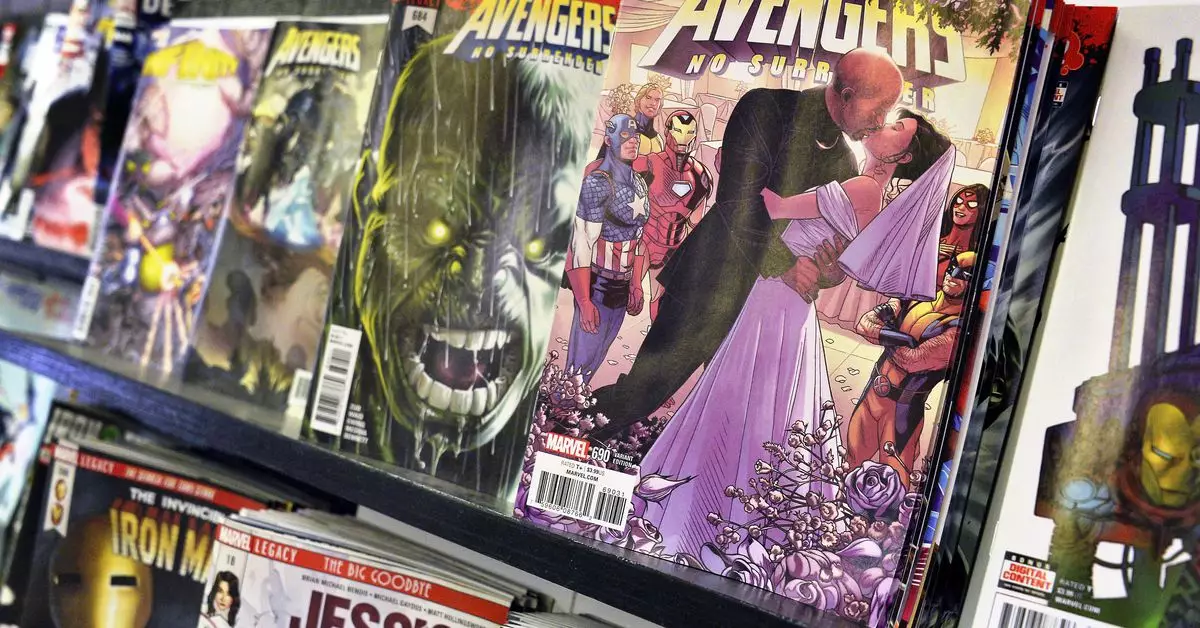The landscape of intellectual property, particularly in the realm of comic books, has traditionally been dominated by titans like Marvel and DC Comics. For decades, these two entities have held a monopoly over the term “Super Hero,” allowing them to effectively manage and promote their vast array of characters and stories. However, recent developments herald a significant shift in this longstanding arrangement, creating potential waves across the entire comic industry. With the United States Patent and Trademark Office (USPTO) recently canceling several trademarks held by these companies, the implications could reshape the way comic creators and companies engage creatively and legally.
The engine driving this monumental shift is a small yet audacious company called Superbabies Limited, led by creator S.J. Richold. Faced with opposition from the comic giants, Richold’s venture into the superhero realm was met with resistance, prompting her to challenge their longstanding claims. The USPTO’s cancellation stemmed from Marvel and DC’s failure to respond to the challenge by a specified deadline, a tactical oversight that has opened the floodgates for other creators who may wish to stake their claim in superhero narratives.
Richold’s struggle illustrates the often-overlooked power dynamics at play in the comic book industry. While Marvel and DC might have dominated the market, their powerful presence has sometimes stifled smaller creatives. The dismissal of their trademarks may empower others and incentivize greater diversity in storytelling within the superhero genre.
Understanding the implications of the USPTO’s decision requires a closer examination of trademark law and its relevance in the creative sectors. Trademark ownership positions companies to control not just their characters, but the broader narrative and merchandising landscape. Marvel and DC have successfully enforced their rights to the “Super Hero” moniker since its initial registration in 1967, along with various adaptations like “SUPER HEROES” and “SUPER-VILLAIN.” The notion of a shared ownership status is intriguing, yet it now faces newfound vulnerabilities.
The cancellation of several patents means that creators in the indie sector can now maneuver more freely, possibly leading to an explosion of innovative superhero stories that were previously stifled. This could lead to exciting new character dynamics, narratives, and artistic expressions. Additionally, smaller companies can now explore branding and storytelling pathways without fear of legal repercussions from the titanic duo.
Navigating this increasingly fragmented landscape will require more than just creativity; it will demand a savvy understanding of the shifting legal framework surrounding intellectual property. As smaller entities garner more freedom, the superhero genre may experience diversification in both representation and narrative complexity. However, the need for protective legal mechanisms will remain imperative to avoid creative conflicts.
The cancellation of Marvel and DC’s monopoly over the term “Super Hero” marks a critical juncture in comic book history. As the industry adjusts to these changes, we may witness the emergence of a more equitable and multifaceted platform for storytelling, one where all creators can thrive in a landscape once dominated by a few giants. This new era may redefine what it means to be a superhero—not only in terms of characters but in the storytellers that bring them to life.


Leave a Reply